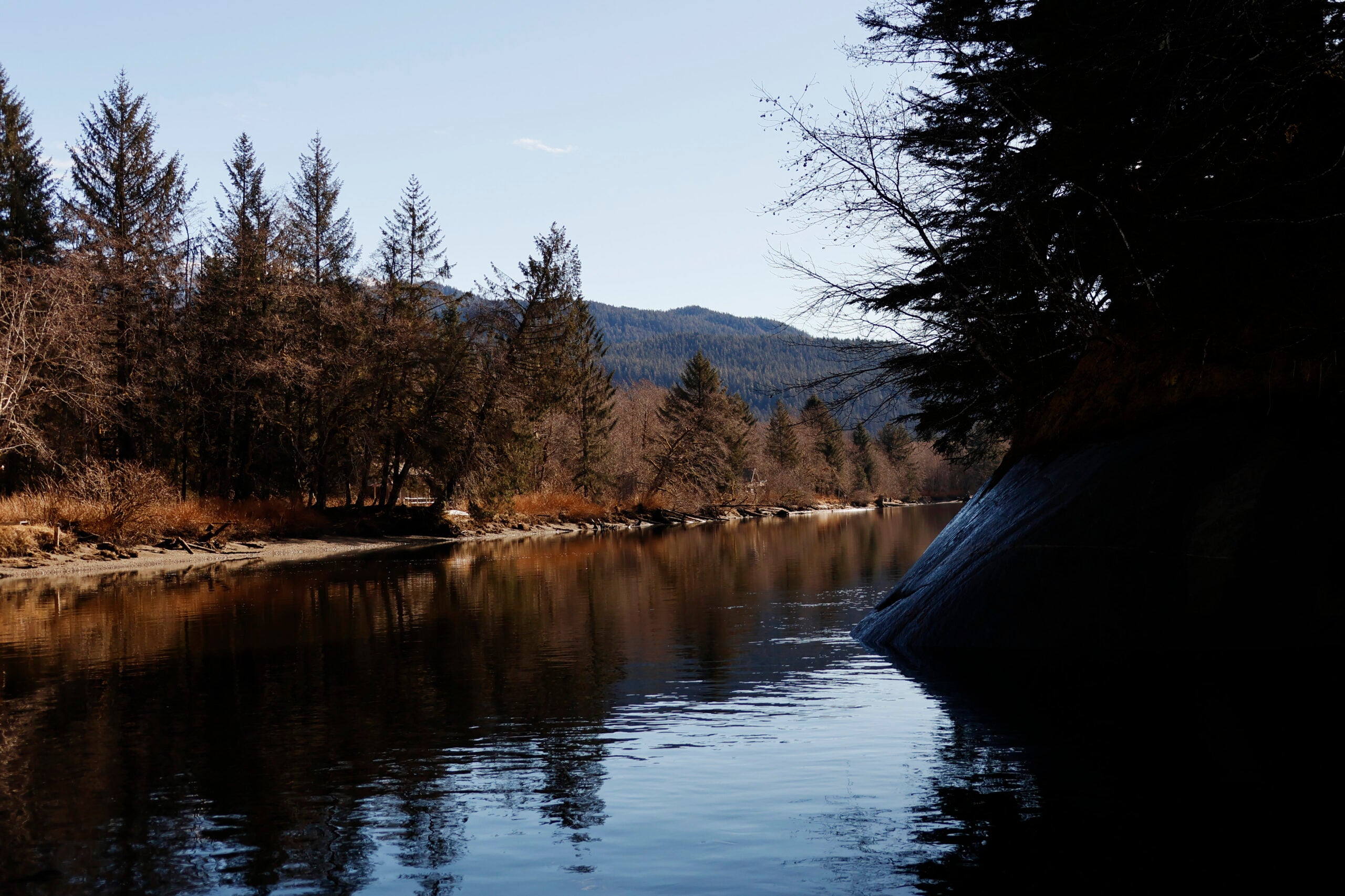Alaska, Washington Tribes condemn BC’s flawed consultation policy
New and diminished engagement with U.S. Tribes violates Provincial law
Contact
U.S. Tribal Nations along British Columbia’s northwestern and southern borders are denouncing a new proposal that would give them a separate and diminished voice in large development projects impacting their traditional homelands and watersheds.
In Alaska, a group of Tribes with ancestral homelands along BC’s transboundary rivers are seeking to be consulted on multiple risky and under-regulated gold mines that threaten the rivers, fish, and the people in the region and their ways of life. In Washington, the Lummi Nation is asserting their transboundary rights to consult on a massive port expansion of the BC Roberts Bank Terminal that would harm Chinook salmon, Southern Resident orca whales, and the Lummi people.
According to the Supreme Court of Canada’s 2021 decision in R. v. Desautel, Indigenous peoples in the U.S. whose ancestral lands were taken and divided by the U.S.-Canada border may assert rights as aboriginal peoples of Canada and engage in meaningful government-to-government consultation on projects affecting them.
However, BC’s Environmental Assessment Office recently notified the 15 member Tribes of the Southeast Alaska Indigenous Transboundary Commission (SEITC) and the Lummi Nation that their rights will be “distinct” and “differentiated” from those of First Nations in BC. Both SEITC and Lummi have asked Canada for recognition as a Participating Indigenous Nation to protect aboriginal and treaty rights and natural resources from reckless development projects.
“For hundreds of years, our way of life has depended on the fertile fisheries and clean waters of the Fraser River watershed,” said Lummi Nation Chairman Anthony Hillaire. “These waters are now directly threatened by the expansion of a busy, dirty, and noisy port. In Desautel, the Supreme Court of Canada described a process for Canadian public entities and our community to follow, and BC is ignoring that. Instead, BC intends to create a reductive consultation policy separate from the policy which has long been afforded to First Nations. We believe that BC’s theory of a separate process is wrong and harmful. While BC avoids meeting their duty to consult, they can continue doling out permits and creating facts on the ground that will poison our fish, degrade our waters, and violate our treaty rights. Approving projects like the Roberts Bank Terminal without engaging in deep consultation neglects a crucial opportunity to enact transboundary protection of our natural resources and our communities as the pace of global warming accelerates. Although this is an issue of Indigenous rights in which Lummi, Alaskan, and many First Nations find common cause, it also affects every person who lives here and who depends on the clean waters, the rivers, and the fish of this region.”
“The remaining lands unexploited by resource extraction consist primarily of Indigenous territory,” said SEITC President Esther Reese. “We are the stewards of some of the world’s last wild salmon rivers that have defined our lifeways for thousands of years. The colonial border separating our rivers from their headwaters did not exist in our ancestors’ time. In response to efforts to seek deep consultation regarding the large-scale gold mining project, Eskay Creek in the Unuk River watershed, BC is now negotiating in bad faith. Inconsistent with “the honor of the Crown,” BC has come up with a proposal to artificially divide the rights of Canadian and US Indigenous peoples, but the law is clear: We have a right to sit at the same table where all those Indigenous to these watersheds belong. Our voices are critically important on all development projects affecting our watersheds.”
Judicial review of BC’s decision to grant permits for the expansion of Roberts Bank in violation of Lummi’s asserted rights will begin on Wednesday, June 26 in Vancouver.
BC is also expected to begin accepting public comments on Skeena Resources’ Application for an Environmental Assessment Certificate on the proposed Eskay Creek Mine in late June.
About SEITC
Southeast Alaska Indigenous Transboundary Commission (SEITC) is a consortium of 15 Tlingit, Haida, and Tsimshian Nations upholding their sovereign rights and defending the transboundary Stikine, Taku, and Unuk Rivers from the rapidly expanding mining development occurring in the Canadian headwaters.
About the Lummi Nation
For thousands of years, the Lummi have been an independent and self-sufficient people. Today, we are a sovereign Tribal Nation within Washington state, and manager of 13,000 acres of tidelands on the Lummi Reservation. We respect our traditions, maintain our tribal values, and invest in economic development for our people.

Additional Resources
About Earthjustice
Earthjustice is the premier nonprofit environmental law organization. We wield the power of law and the strength of partnership to protect people's health, to preserve magnificent places and wildlife, to advance clean energy, and to combat climate change. We are here because the earth needs a good lawyer.